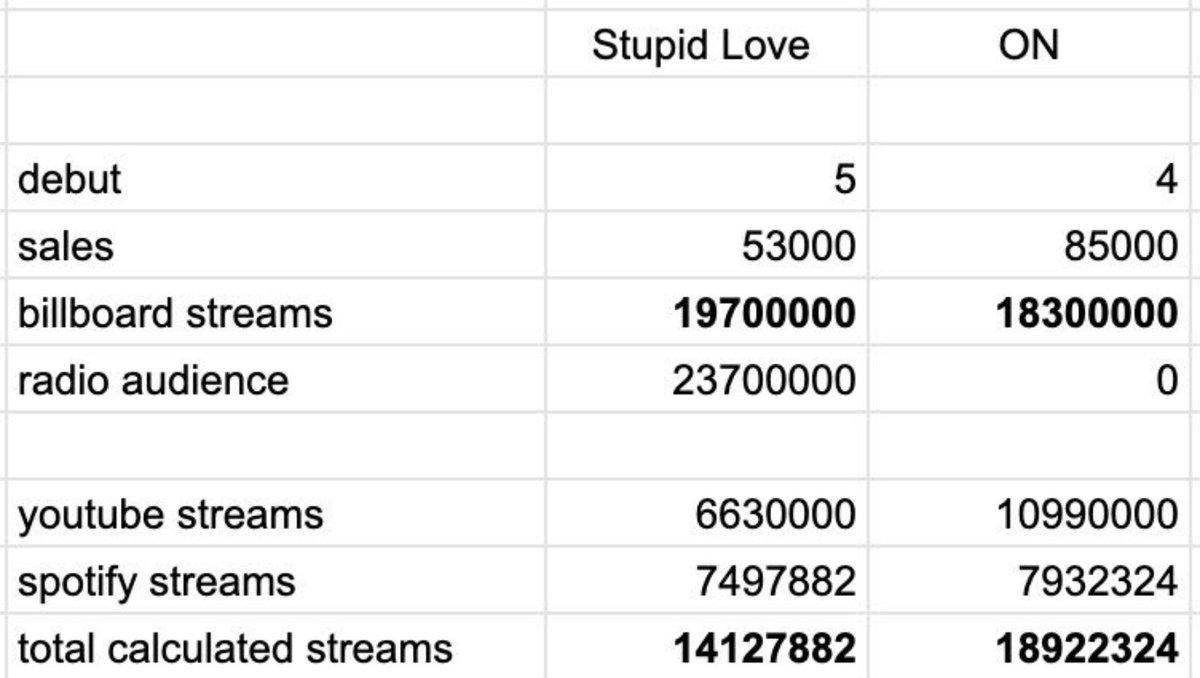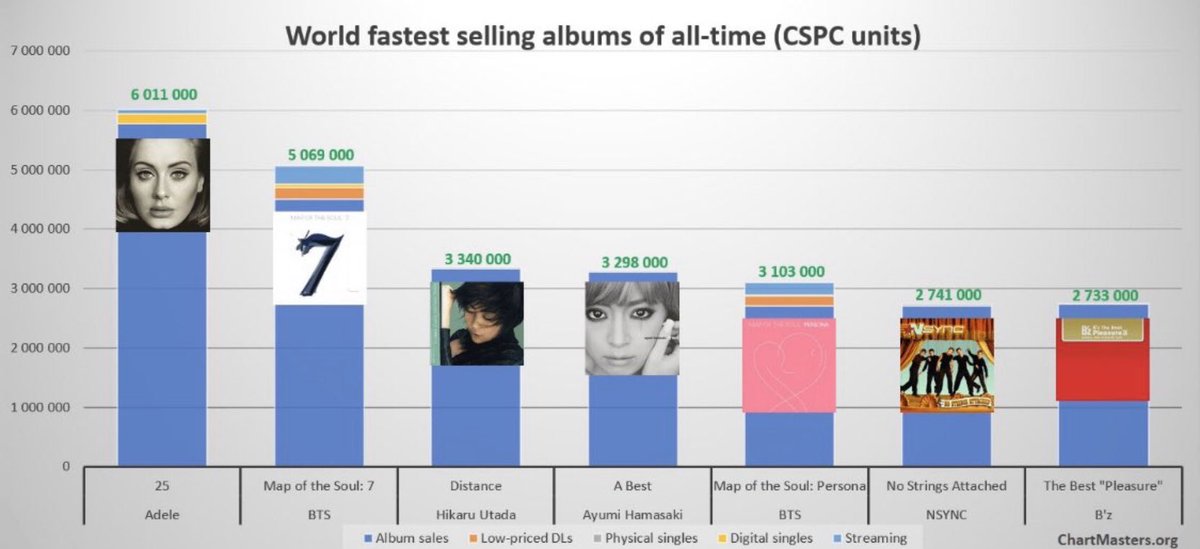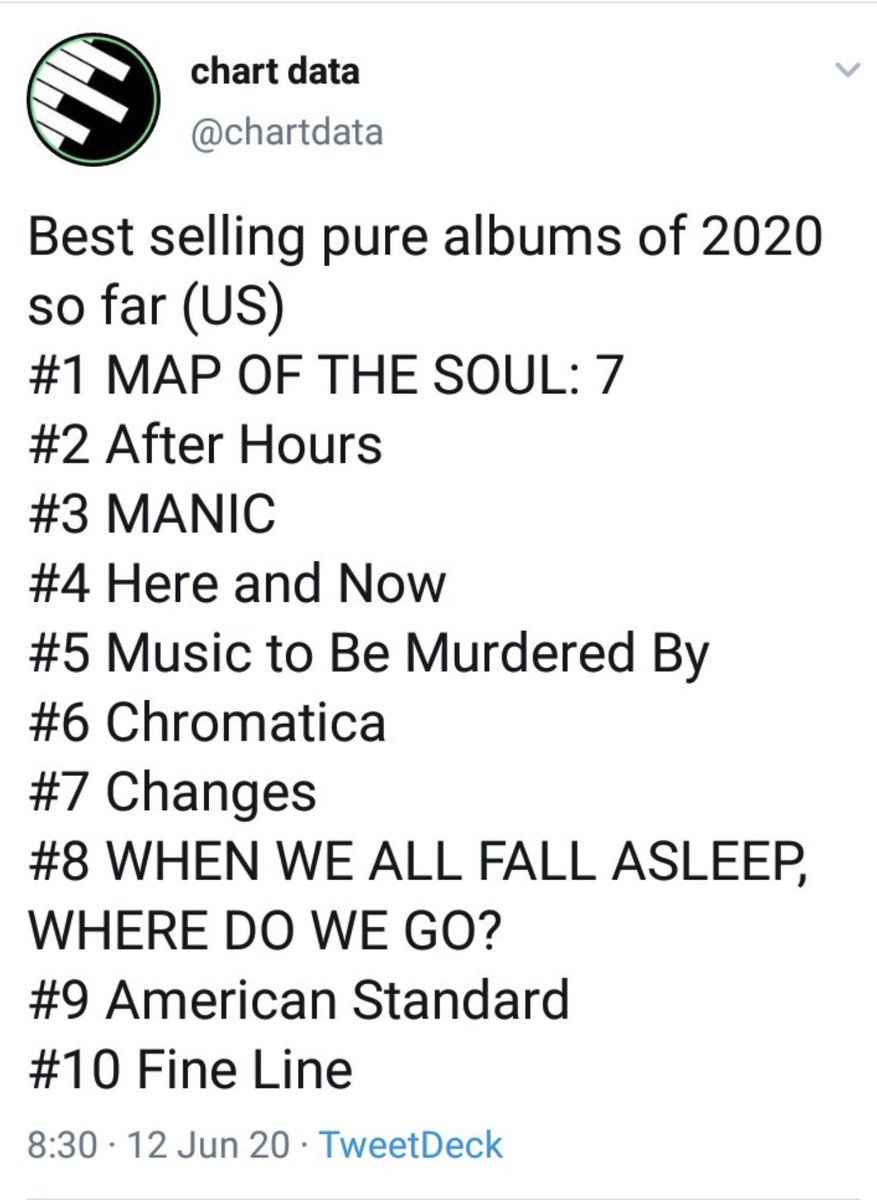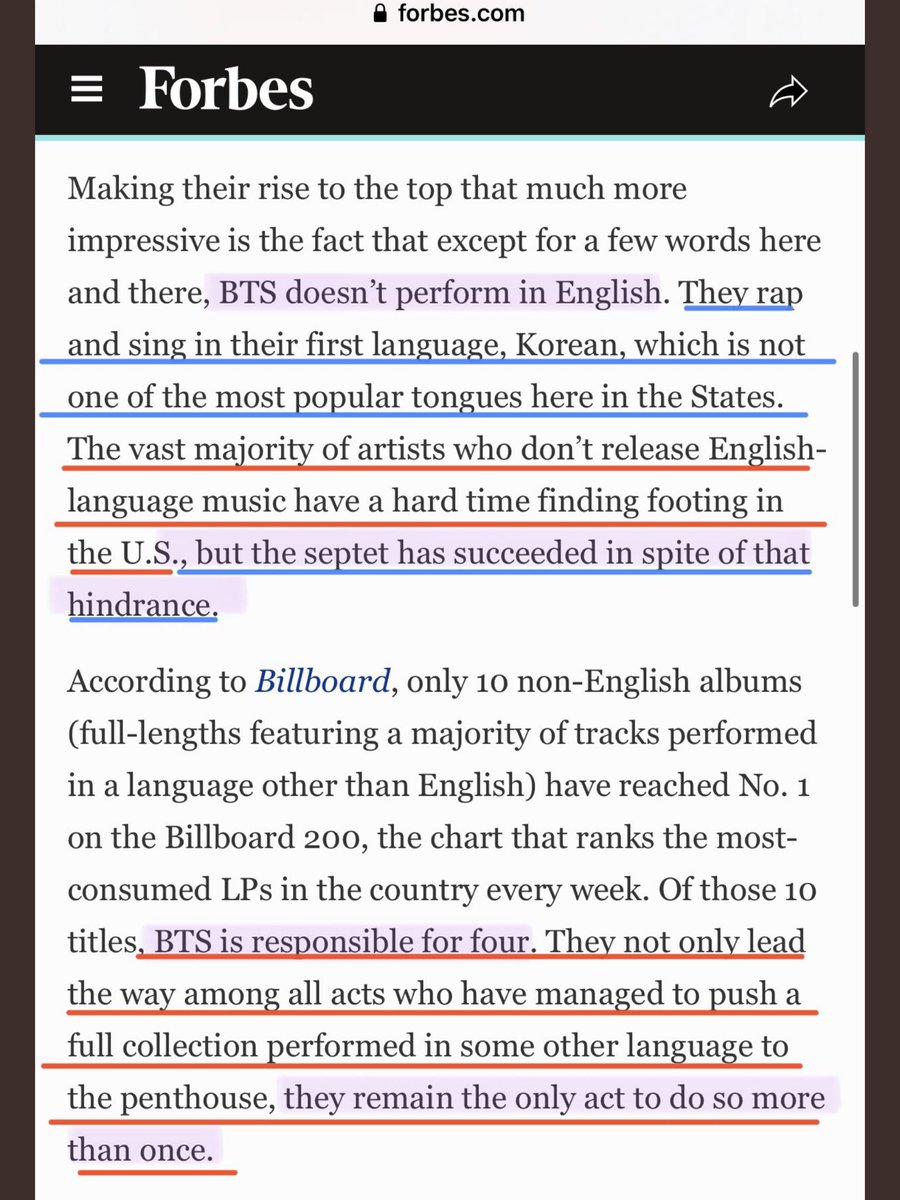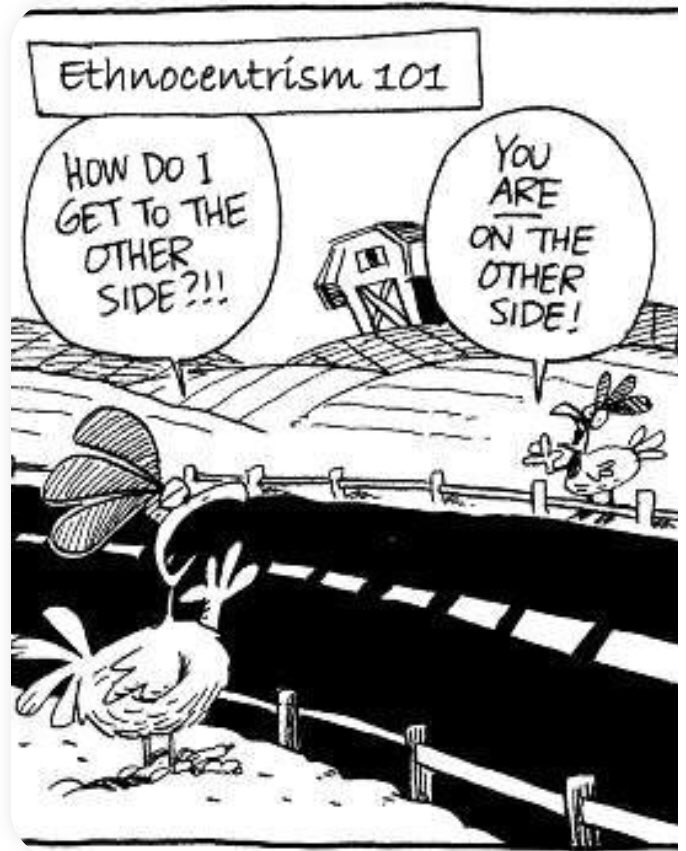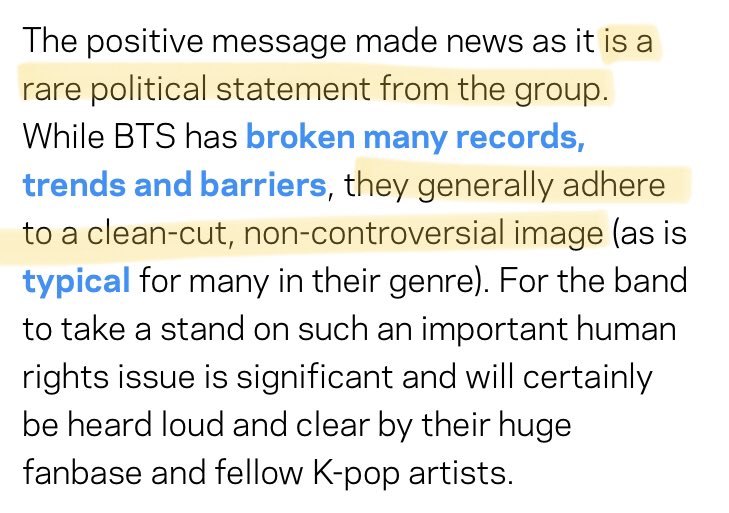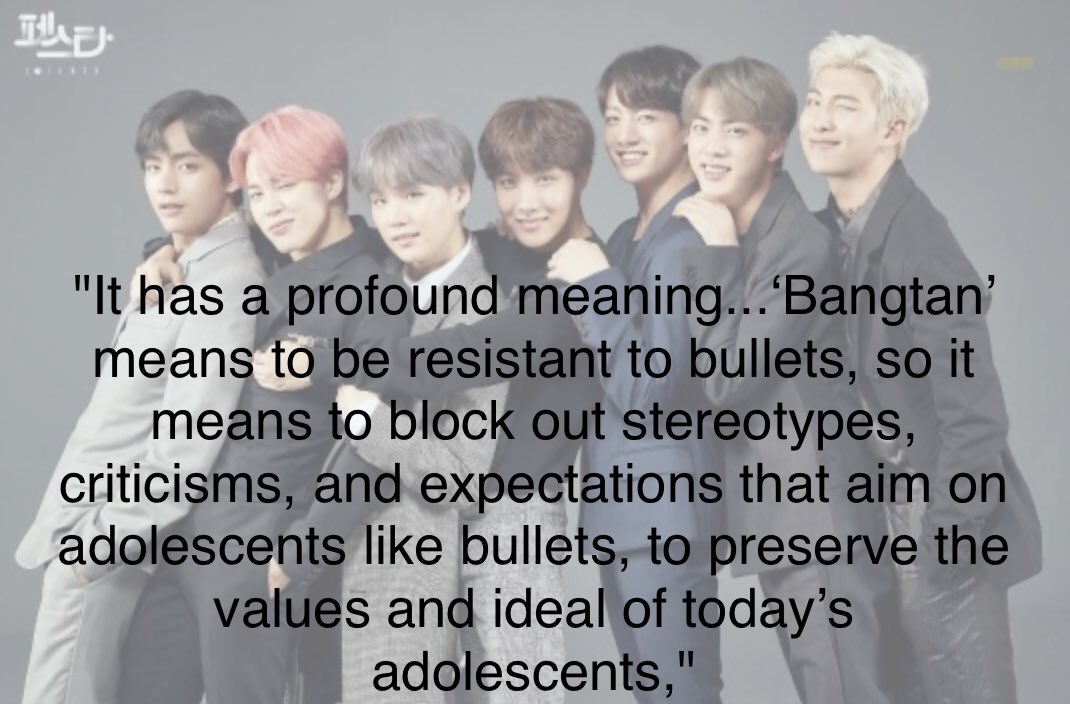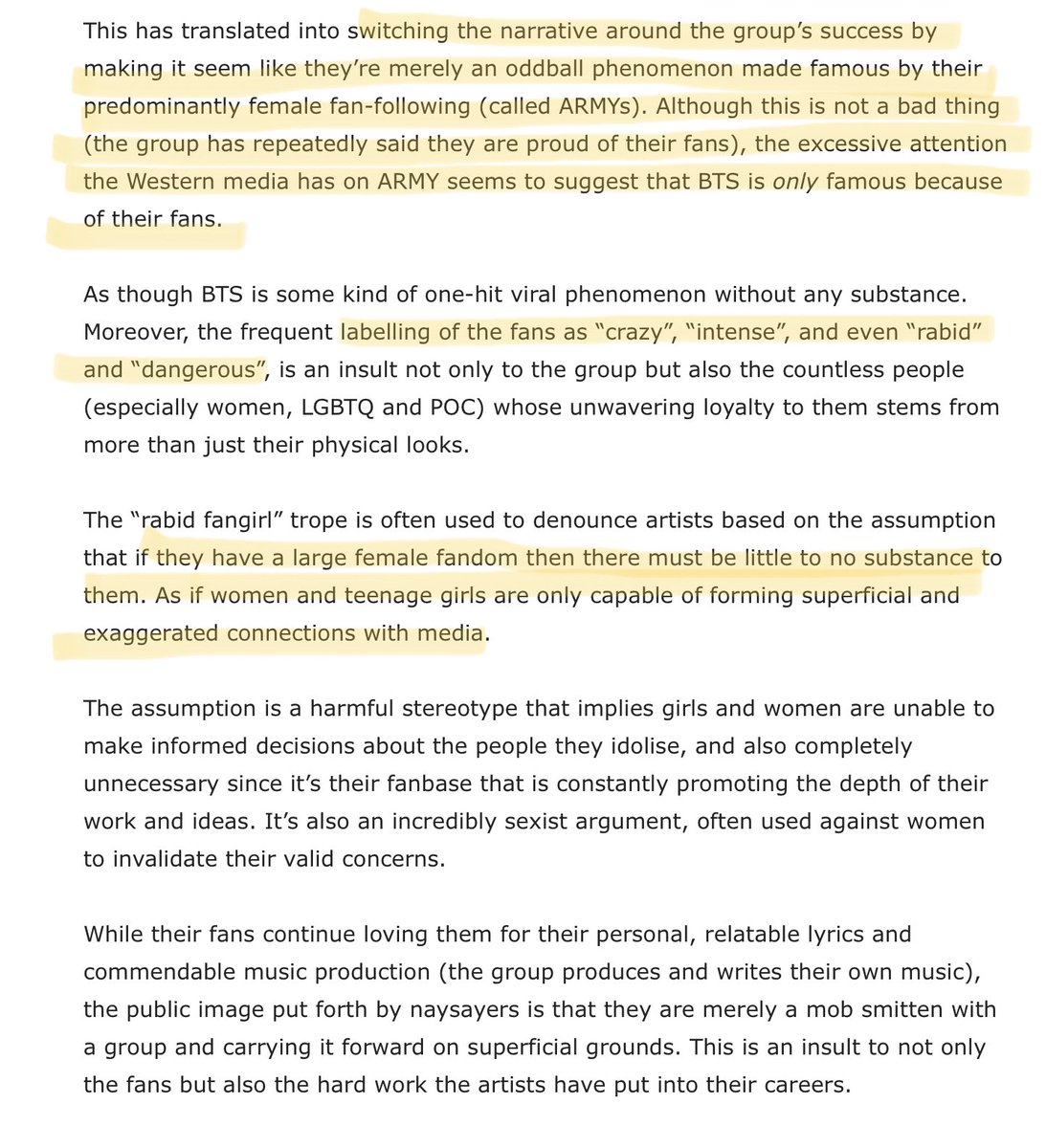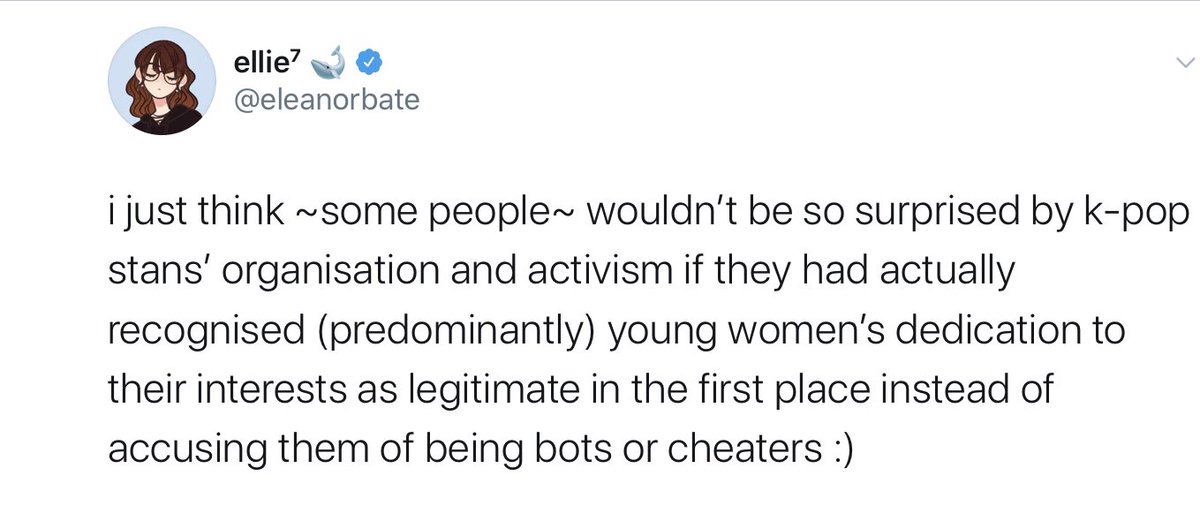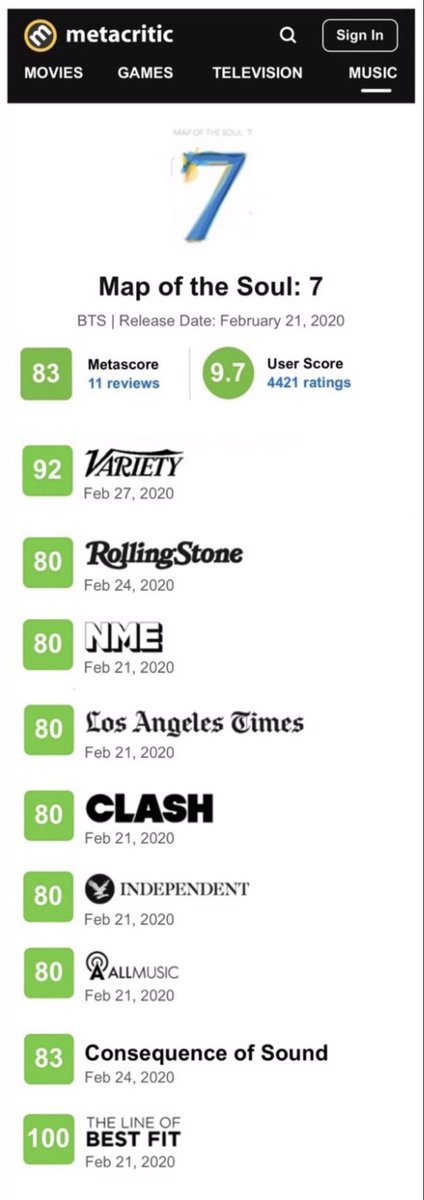1. Why it is necessary for BTS fans to question the music industry’s gatekeepers & the Recording Academy’s integrity for their disregard for BTS’s music and impact: A THREAD.
(Because I know that I will need to reference this info later when an edgy local tries to silence me.)
(Because I know that I will need to reference this info later when an edgy local tries to silence me.)
2. The music industry has a long history of gatekeeping and racism. This isn’t exclusive to BTS and is not new. The music industry created R&B as new genre that allowed racism to continue undetected; keeping the status quo of black and white artists. https://www.rollingstone.com/music/music-features/music-industry-racism-1010001/">https://www.rollingstone.com/music/mus...
3. This continues at the Grammys today where black artists can win for best R&B album or rap album but rarely win in other categories.
https://www.independent.co.uk/arts-entertainment/music/news/grammys-2020-tyler-creator-best-rap-album-urban-racism-winners-a9303351.html
The">https://www.independent.co.uk/arts-ente... Grammys have been criticized for years for other instances. A quick google search would turn up countless articles.
https://www.independent.co.uk/arts-entertainment/music/news/grammys-2020-tyler-creator-best-rap-album-urban-racism-winners-a9303351.html
The">https://www.independent.co.uk/arts-ente... Grammys have been criticized for years for other instances. A quick google search would turn up countless articles.
4. The same behavior is being repeated with Korean artists today.
Does the new “Best Kpop” category turning up at music award shows look familiar? How about “Kpop Radio” being created by iHeart? This is a repeat of creating genres to divide people by race. https://www.washingtonpost.com/nation/2019/07/26/separate-equal-rules-american-music-awards/">https://www.washingtonpost.com/nation/20...
Does the new “Best Kpop” category turning up at music award shows look familiar? How about “Kpop Radio” being created by iHeart? This is a repeat of creating genres to divide people by race. https://www.washingtonpost.com/nation/2019/07/26/separate-equal-rules-american-music-awards/">https://www.washingtonpost.com/nation/20...
5. Some people might say BTS is not popular enough to warrant radio play or recognition from the Grammys and other award shows. Here is a comparison on their most recent singles numbers in the US to “Stupid Love” by Lady Gaga which came out at around the same time.
6. Notice that BTS’s numbers above are better in almost every category except radio. The following graphics below must be understood within this context. BTS sings primarily in Korean, gets almost zero promotion on radio in the US, & still manage to compete with American artists.
7. Even with zero radio, BTS are comparable to today’s biggest pop stars. Which is threatening to the system already established by the elites in the industry and the reason the industry is trying to separate them by genre and race. They are disrupting the status quo.
8. They also face unfair scrutiny from the general public. Many people view BTS through ethnocentric & sexist lens. The media and society help to create this warped perception of BTS, ARMY, & the Kpop industry through stereotypes & generalizing about the group.
9. We must first understand ethnocentrism. Ethnocentrism is the belief that your own culture is at the center and therefore normal. Other cultures are “different” or “a variation on the norm.” This view implies that the variation is inferior and is problematic for this reason.
10. For BTS, ethnocentrism appears in small and larger more systematic ways. The small ways come in the form of tourist questions such as “What AMERICAN artist do you want to meet/collaborate with?” The larger kind appears in the way the media writes on the “Dark side of Kpop.”
11. The amount of coverage that the “Dark side of Kpop” gets in western media is ethnocentric. Every entertainment industry has a dark side & is problematic. Every music industry in the world has artists who are “factory produced.” These are not “Kpop” exclusive issues.
12. The suggestion that these issues are solely Korean instead of worldwide issues within the whole entertainment industry creates a narrative that Kpop music is inferior to the US industry. This is why viewing yourself as the center of normality & looking outward is problematic.
13. This type of reporting clouds the lenses in which all Kpop artists are viewed by the general public and delegitimizes the art they create. These stereotypes are not always true and are used by people to justify racism. View this for further details: https://youtu.be/bn0gmu_m-os ">https://youtu.be/bn0gmu_m-...
14. Here is an example of stereotypes creating a false narrative of BTS:
According to the stereotypes of Kpop, the music is superficial and created for mass amounts of people. It’s rarely controversial. This article assumes BTS is not political because of this stereotype in Kpop.
According to the stereotypes of Kpop, the music is superficial and created for mass amounts of people. It’s rarely controversial. This article assumes BTS is not political because of this stereotype in Kpop.
15. This is false in regards to BTS. Anyone who knows basic BTS knowledge, knows that their name itself is a critique of society and the band never shy away from political messages in their songs.
16. Their song, “Am I Wrong,” uses a quote from a politician in its lyrics to call out the PM of South Korea at the time. They risked being black listed by the government in order to do this. It’s one of many songs in their discography that are political. https://youtu.be/h24NElhfoSo ">https://youtu.be/h24NElhfo...
17. The article from the Recording Academy about the bands “rare political statement” is one of many articles that feature misinformation on the band. Linked below is an article outlining the many problems of another featured article from THR on the band. https://www.popdust.com/is-it-just-me-or-is-the-hollywood-reporters-bts-article-really-xenophobic-2640820831.html">https://www.popdust.com/is-it-jus...
18. Could it be just that the media is misinformed? Yes, perhaps. But also why is the media misinformed and ethnocentric in their POV?
There is a serious lack of diversity at the top of all media authorities in the US.
Source for photo is “White Fragility...” by Robin Diangelo
There is a serious lack of diversity at the top of all media authorities in the US.
Source for photo is “White Fragility...” by Robin Diangelo
19. Sexism in society also affects BTS. BTS is often called a “boy band,” which brings the images of teenage girls. The general public has been dismissive of female voices as relevant for many years when it comes to identifying quality music & art. https://www.theguardian.com/music/musicblog/2016/apr/15/bands-who-bemoan-their-teenage-girl-fans-are-missing-the-point-of-music">https://www.theguardian.com/music/mus...
20. This affects the way journalists and the public approach BTS. You are most likely to hear & read about the passion/craze of the band’s fan army or their looks. You will read and hear very little discussion of their music or the ideas the boys tout which keep fans so loyal.
21. Some people might say the reasons they are not included in the industry, radio, and award ceremonies is not because of racism or sexism, but because the music just isn’t good enough. First, BTS makes pop music which doesn’t mean the music isnt good. https://youtu.be/lP_Qn-VkVP8 ">https://youtu.be/lP_Qn-VkV...
22. Also, even the music critiques who generally dismiss pop are mostly favorable of BTS’s music. The Map of the Soul: 7 album has better reviews than most other albums released the same year. The music is as good critically and in sales as anyone else in the music industry today
23. So basically, the neglect of BTS by radio and western award shows is based in racism and sexism.
BTS make quality, critically hailed music. Their impact on the US and global music market through numbers are comparable to all huge American pop stars with no radio support.
BTS make quality, critically hailed music. Their impact on the US and global music market through numbers are comparable to all huge American pop stars with no radio support.
24. Before you judge fans claims of racism & sexism as the loud screams of angry fangirls. Learn about the history of gatekeeping in the industry. Listen to why we feel this way. Critically reflect on the invisible structure of racism and sexism in society & form your own opinion

 Read on Twitter
Read on Twitter